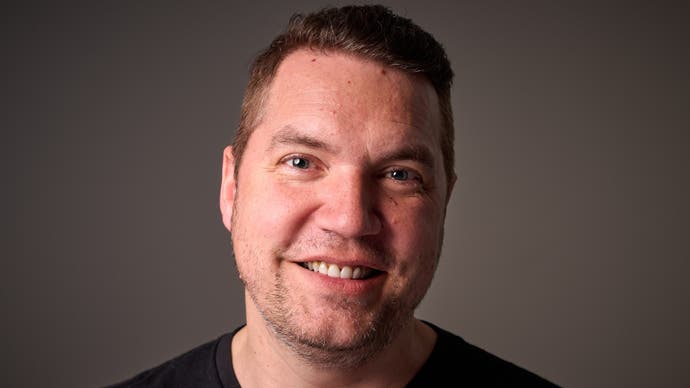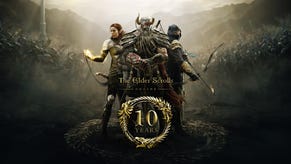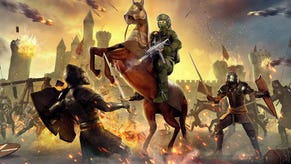From superheroes to soap operas: XCOM's Jake Solomon unveils first details of his new studio and next-gen life sim
Announcing Midsummer Studios, from the belly of Firaxis' old offices.
The games industry is in a worrying state of flux right now. Beloved and storied studios are being shut down left, right and centre; others are having their teams gutted from the inside out. It's hard to know which games and teams will even still be around next month, let alone in a year's time, and it must be daunting in the extreme for new, independent developers trying to make their debut games.
But XCOM and Marvel's Midnight Suns designer Jake Solomon is used to dealing with chance and probabilities. During his 23-year career at Firaxis, Solomon helped transform the turn-based tactics genre into what it is today, teaching us just how dramatic a well-timed overwatch shot could be, as well as how to howl in agony as our gunners repeatedly missed a 99%, point-blank hit chance window. Now, he's taking an even bigger step into the unknown, as today he's not only unveiling his brand-new independent games company, Midsummer Studios, but he's also given us a tease of what he's working on: a next-generation life sim where players "can't help but write an interesting story" as they steer their characters through the ups and downs of modern life.
Well, perhaps it's not too much of a step into the unknown, as Solomon reveals to me that his new base of operations for Midsummer is actually the very same place where he first cut his teeth as a games designer. "This building we're in, these are actually the old Firaxis offices," he says. "This is where me and a bunch of people [at Midsummer] started our careers, and a lot of people at Midsummer are people that have worked with me for a long time." And his first hire? The son of his former mentor, Sid Meier.
Solomon insists the choice of location wasn't deliberate, but says he had a feeling of "you kind of know you're going to end up there" when he saw the space was available. It's probably too large for the team size Midsummer has now, he admits, which stretches to just 10 people at the moment, and the studio is "not going to get too much bigger for a while," either. But much like how Firaxis' current office space is laid out, everyone has their own office at Midsummer, which lets people "close themselves off" if needed, and which Solomon says is particularly important for those coming from more remote working environments.
But despite his familiar surroundings and over two decades' worth of experience making games in this industry, Solomon says the process of founding a new studio in this day and age has been an "eye-opening" experience. He knew he'd be stepping into a "challenging environment" when I spoke to him last year, just a day after he revealed his plans to make a life sim game, but looking back, he admits just how "naïve" he was.
"The finances kind of cascade, I'm learning now, where the first thing that happens is that funding dries up for new things. That was last year, continuing to this year," he says, and there were moments where it looked like his dream might fail before it had even begun. "What if I go, 'Look, I'm opening up this studio', and then I'm like, 'Oh shit, I need to get a job!' I'd go crawling back to Sid and be like, look, if you need a junior designer, I am willing to do whatever needs doing," he laughs.
Thankfully, Midsummer found its funding by partnering with a number of gaming venture capitalist funds to help get its first project off the ground, along with additional funding support from PUBG publisher Krafton (which is, incidentally, the developer behind fellow upcoming life sim Inzoi), and comedian Trevor Noah's production company Day Zero Productions. Together, they've raised $6m for a first round of funding, and Solomon says he "really, really wanted to partner with investors" rather go down the more traditional publisher route. This is partly because he thinks that jumping from a career in turn-based tactics games to trying to make a life sim is too much of "a leap" for publishers nowadays, and he remarks on this being a noticeable shift in attitude compared to the days when he was "coming up under Sid, because it used to be - and I'm talking about the old days here - if you think of guys like Sid and Peter Molyneux and Will Wright, they just made games about whatever."
But more than that, it was also because he and his two co-founders (fellow Firaxis designer Will Miller and former public sector CFO Nelsie Birch) wanted to remain independent for now and be "completely in control" of their own destinies - a sentiment that feels more pertinent than ever in the wake of Microsoft's swathe of recent studio closures. "I told my team, this is going to be probably the most fun year of our professional careers because we have the money, everybody's fine, and we're not showing anything until next year," says Solomon. "So this year is like, we just get to be 'nobody's telling us what to do'. We're just telling ourselves what to do as we work on this prototype."

The prototype in question doesn't have an official name just yet - though Solomon admits that even the codename they're using is perhaps "too revealing about what the game is" right now. "This is how I know I've chosen a poor code name because I can't say it because some people will be like, 'oh wait a minute...'" he says, cocking an eyebrow. As such, even the codename has to remain a mystery for now. But as our subsequent conversation makes clear, the kind of life sim that Midsummer's making here is quite a different beast to the game that's arguably defined the genre for the last two and a bit decades.
"We do play The Sims here because there are so many things that it does really well," Solomon tells me. And when you've got a team of largely ex-Firaxis developers, some of whom have never worked on or played a life sim before, "I was like, 'Oh my god, you've gotta play The Sims'," he told his old-new teammates. "There's no way you won't play [that] without laughing and being like, 'Oh, this is a very joyful game."
But Solomon's also aware that, ultimately, "there's no way to truly simulate life" - at least not with a team of 10 - so what they're aiming for is something new: a life sim that puts storytelling front and centre. "I kind of got really, really obsessed with the idea of a game where players are writing a story," he explains. "So just by playing, their decisions are in an interesting environment where the choices you're making are writing a story that's 1), interesting to you first, but then 2) potentially could be interesting to other people. When I thought about that, I was like: ‘the only environment where that makes sense is modern life."
Specifically, modern life in a small town setting. For Solomon, small towns are "very rich storytelling environments" due to their naturally close-knit communities. Citing Stephen King novels, Gilmore Girls, Touched By An Angel and even Midsomer Murders (which is not a nod to the studio's name, by the way; rather, it's solely a reference to Solomon's Norwegian roots, he says, and the fact that his family have a big midsummer celebration every year), he says "there's a reason why small towns work really well, because you can establish that everybody's got these almost incestuous relationships. So if you do something here, it's going to come back to you here."
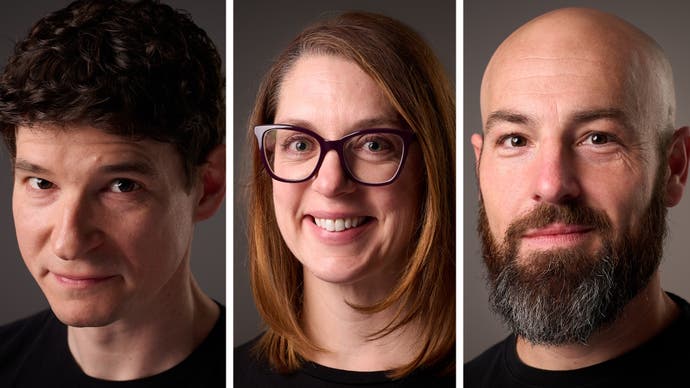
Players will also get to pick what kind of story they want to tell when they first boot up the game, and Solomon gives the examples of telling a romantic story where you're looking for your soulmate, or perhaps a story where your main goal is simply to succeed in business. Or maybe you'll want to work at reuniting your estranged family, or take a more altruistic stance and "heal the town" as a whole. Likewise, as the game currently stands (though "whether it continues to work this way, I don't know," Solomon stresses), you'll also be able to pick a second theme, "so you can say, I'm looking for my soulmate and also this town is filled with wacky characters. Or I'm trying to succeed at business, but I'm also estranged from my family."
Once you've picked your themes and your own character's backstory, the game will then populate the cast of the town with characters and storylines that Solomon hopes "will make your story more interesting". If you opt for a romantic story, for example, you might be given an ex-lover who's also your co-worker, or a secret crush who's also your next-door neighbour. Or maybe they're your business rival instead, or they don't even know you exist. Whatever framing devices you choose, Solomon's aim is for that initial starting scenario to be so enticing that players will instantly want to find out how it's all going to shake out.
Crucially, though, you won't be locked in that starting setup. "We want it to feel like a playground," Solomon says, and players will have the freedom to pursue their own relationships with whichever characters they please. Similarly, Midsummer will also include a creative mode where players can instantly edit not only a particular character's appearance, but also their mood, relationships and personality. You'll also be able to create your own characters and save them into a character pool, which you can use to repopulate your town, or share with friends.
It's quite similar to Minecraft in that sense, which you may be surprised to learn is one of Solomon's great gaming obsessions. It's a game he still plays regularly with his daughters at home, and one which he told me last year really helped shape his desire to go out and make a life sim of his own. In fact, Minecraft's combination of game-driven objectives and toy-like creativity is a feeling Solomon's tried to bottle once before, back during the period between finishing XCOM: Enemy Unknown and starting XCOM 2. At the time, his then-publisher 2K gave him nine months to go away and make his 'big idea' - a game called Dusk that would have been "kind of like No Man's Sky, but if you were the one creating the world, as opposed to visiting it", had it ever got to see the light of day. Solomon himself says Dusk was a difficult project to work on, and that he always struggled with "coming up with the reason" for playing it in the first place. That, and XCOM 2 was starting to go off the rails a bit, and needed a steady hand to guide it back on course. But even though Dusk never saw its own dawn, Solomon told me the genesis of it stems directly back to Minecraft and trying to "find a way to make a game where creativity and expression is part of just playing the game."
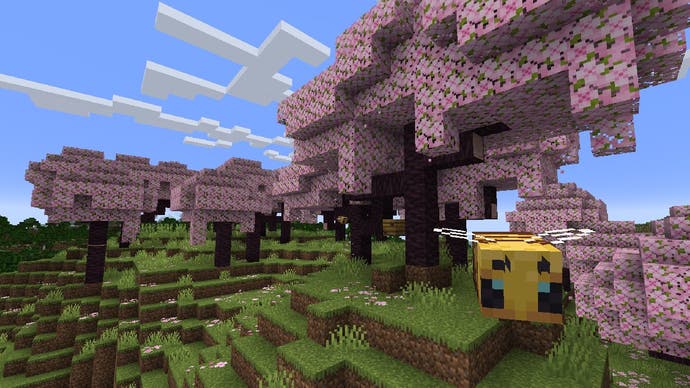
Clearly, that idea has only become stronger and more pronounced in the intervening years, as once again, Solomon describes his new game as "a game built on top of a toy". That's the real engine powering this new life sim, he tells me. "You want Smallville?" Solomon throws out as an example. Sure. You'll have the power to create "whatever town you want". Or at least, whatever town inhabitants you want, as the ability to modify the town's buildings and general layout isn't something that Midsummer is currently working toward just yet. "We'd love to allow players to change the buildings in the town and expand that," Solomon adds, "but for now, what we're focused on is players repopulating the town with their own characters."
Midsummer isn't stopping at simply giving players a small town sandbox to play in, either. On top of providing that cast of characters (which will be different each time you start a new game), it’ll also be "injecting" major and minor storylines into the simulation to spice up the drama even further. As you'd expect, the former are essentially your main objectives within any given story, and while they'll be completely "player-led" for the most part, there will also be "curated events" that occur to help drive the overarching plot. If your dad comes back to town, say, you'll be able to choose what that means to you through various dialogue choices. He could be grieving, Solomon says, or maybe he's not here for you at all, but another one of your siblings. Maybe you'd rather have nothing to do with him at all. The simulation will respond to those decisions accordingly, and Solomon hopes that "every time, the player can push the story in one direction or the other so they end up creating their own unique story for themselves."
The minor storylines, meanwhile, will mostly consist of smaller, more random modifiers that players will have to respond to in the moment. "We've moved away from things like, I'd say, the bodily functions [of life sims]," Solomon explains. "It's not that your character won't need to go to the bathroom, but it would be as part of a larger [question of] 'how is this interesting?' Instead, it could be a case of, you know, you're on a date, and we go: here's a random modifier for this scene and you're gonna have to go to the bathroom a lot. Or your character wakes up for work, but the scene is like, 'Hey, you're actually late for work, so now you have a very limited time, but you still need to go to the bathroom, take a shower, your roommate's in a bad mood, your neighbour is outside knocking on your door."
It's this kind of emergent drama that Solomon hopes will come to the fore in these situations, harking back to the same kind of twists and turns you remember about your most memorable XCOM missions, for example, or to a lesser degree, the systems-driven socialising you did with your fellow supes in Marvel's Midnight Suns. But while Solomon admits that the latter's role-playing elements were "pretty limited" in the end, "I genuinely think that was me manifesting [that] I've always wanted to make a game about relationships." Specifically, a game about dating, he goes on to say. Alas, "romance never made sense" to Solomon in Midnight Suns, and he says he "couldn't have [those relationships] be as emergent or as interesting" as he would have liked. "What would have been fun was if you like this character, then that causes problems with this other character," he says. Unfortunately, those kind of ramifications just didn't fit with Midnight Suns' fixed story. In a life sim setting, though? Those kinds of storylines can really start to run wild.
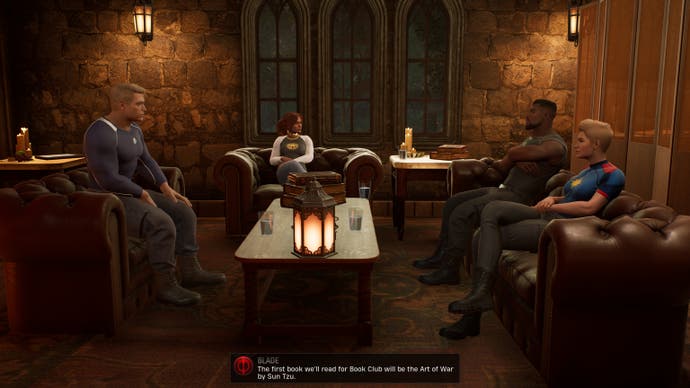
"What you want is something that's much more free-flowing - you want secondary effects, and you want ups and downs," he continues. "You want to be surprised sometimes at the momentary downs and dips in your relationships, with friends, with family, with romantic relationships, where you go, 'Woah, I didn't expect this to not go well.' If as a player you can understand why that's the case, I think it's fun and it feels more authentic when you're like, 'Okay we've taken a left turn here, and I was trying to go right."
Right now, in the prototyping phase, Solomon says he's still trying to find a way to make dramatic decisions feel rewarding, particularly when he's also trying to get players to "override their own internal value systems" in order to pursue those rewards. "There's this weird push and pull that we haven't solved yet," he says. "What we're in the middle of is the idea of allowing the player to feel like they've already authored their story, but at the same time, they also have to be the first consumer of their story, so they have to be excited by their story. It's very difficult to do."
Indeed, in his previous games, Solomon's lent heavily on the idea of "playing the hand you're dealt" - though at the mere mention of the word 'hand', he's keen to stress "not actual cards, because I want to be real clear, I don't have cards in this game," he laughs. For want of a better phrase, then, rolling with the game's punches is still going to be a viable option for players of Midsummer's life sim, though having the freedom to pursue your own ideas and goals as well is also going to be of prime importance here. "It's not like somebody's going to walk in and tear their shirt and slap them in the face" if players don't end up following the proposed breadcrumb trail, Solomon says, and that ultimately, Midsummer’s goal is that "the player will always be able to get the story they want," and that no outcome will be off the table. In other words, it's totally fine to be an agent of chaos in the game, but be warned: "If you're causing chaos, then that chaos is probably going to come back to you," Solomon says.
"I want to be real clear, I don't have cards in this game."
The simulation will keep running, too, so even once you've found your soulmate or put your family back together again, the game will carry on throwing new scenarios at you. "We view it as endless," Solomon states, joking that "part of that is because I haven't gotten that far design-wise. Maybe I'll have a different answer in a year, but as of now, we view it as 'the simulation just runs'. We'll try to continue to add storylines and continue to play." That's partly because not all storylines will necessarily revolve around your central character. You may become embroiled in a spat between two of your friends, for example, or get drawn into a wider family drama, but Solomon's keen to emphasise that "all these things will have cascading effects" that contribute to the wider story you're trying to engineer. It's why the small town setting works so well, as "the cast is small enough so you feel like this thing is evolving, [but] your town is also different from anybody else's town. […] You've got your own storylines and you're twisted and tied up with all these people. The hope is that it feels very, very different every time."
If that sounds like it's borrowing quite heavily from your typical soap opera format, that's because it is, and Solomon immediately concurs that soap operas have been immensely helpful in teaching him and his small team about the kinds of stories that work in a small town setting. "[Soap operas] generate a lot of story on very little budget," he says. "We can't tell stories where it's like, 'Oh my god, aliens are invading,' because how the hell are we going to pull that off? It has to be interpersonal drama. So adding characters, removing characters, having characters falling out, having relationships change, having jobs change… All that stuff we can do."
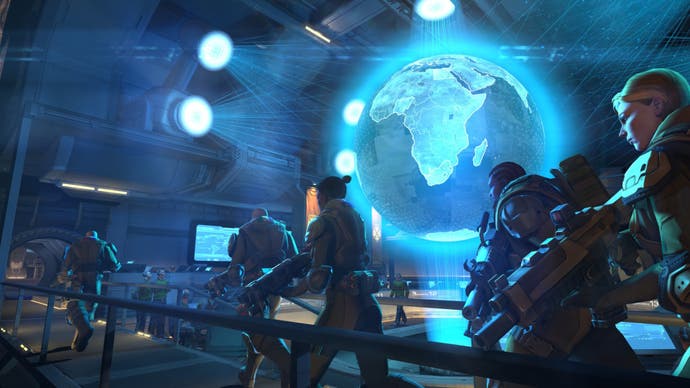
Soap operas have also been instrumental in other ways, too. "They're great because it's like, all right, we need a courtroom, a doctor's office, a restaurant... It's like there's four sets, you know? And they tell a billion stories in them." Just don't count on an amnesia storyline where your ex-lover comes back as their twin sister, he says, though all this talk about soap operas does make him ponder about adding one further down the line.
Of course, having spent his career making games about exactly those kinds of alien invasions where the drama of any given moment comes from the kind of challenges that only ever get exponentially worse over time, I ask him what it's been like creating drama from altogether more pedestrian kinds of scenarios. Are positive modifiers like 'everyone's feeling really romantic today' harder to brainstorm and create drama from compared to the more challenge-based ones like a weak bladder?
"It's a piece of cake, Katharine, thanks for asking," he jests. "But it is true, it is much easier to think of interest through challenge, even if it's narrative challenge. What's interesting about 'the day is perfect and everyone's happy'? That's tougher." It's something Solomon says he's "very, very aware of" during this current prototyping stage, and that there's still a lot to figure out. There's also the small question of how they're going to write all of these endlessly generating scenarios, too.
"I don't know," is the short answer he gives me. "What we're trying to figure out is how generic the text can be." He knows they don't want to do Sim-lish, even though it works well for The Sims, but he also knows that the alternative is "a shitload of curated text", which comes with its own pros and cons for a team of 10. "I would say that's probably the biggest and deepest challenge we're in right now," he says, and can only "promise we will have something" by the time the demo comes around next year.
Those question marks aside, the one thing that Midsummer will be cribbing a bit from The Sims is its sense of joy. "What we really want is the game to delight the player," says Solomon. "We recognise the whole premise of the game is about generating drama, but I think we have a kind of joyful take on things." For him, The Sims gets the right balance of "what we can't do, we're going to be fun about", and so if his game is going to "lean in any direction, we lean silly," and if that means following in Maxis' footsteps and having a situation where your married co-worker starts flirting with your 70-year-old neighbour, then so be it, he says. "You leave them alone [in The Sims] and all of a sudden you see hearts flying!" he says. "That type of surprise and delight is one of the joys, and we want to make sure to keep that."

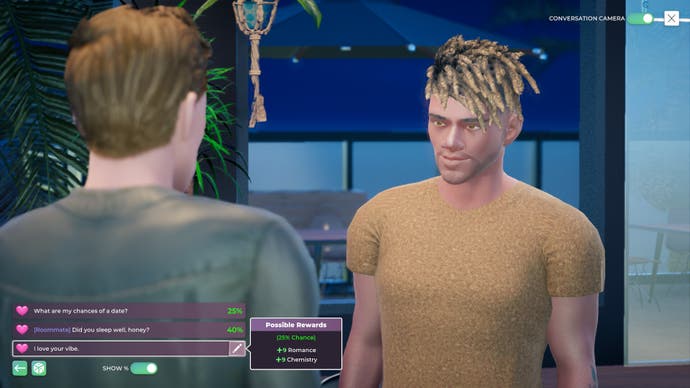
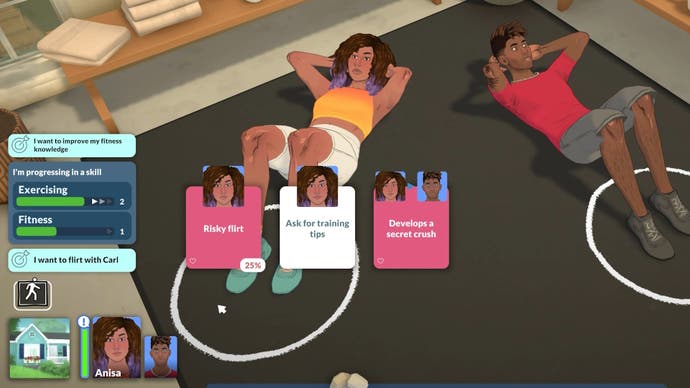
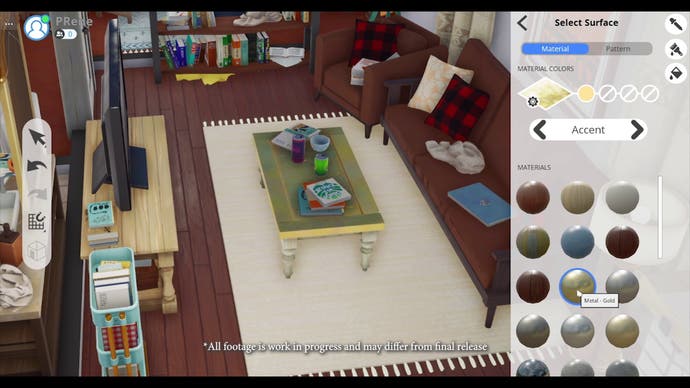
Of course, by the time Midsummer is preparing the game’s demo, the life sim genre will likely be more crowded than it's ever been. In addition to Maxis' own successor to The Sims, Project Rene, coming down the pipes, there are also other Sims challengers in the works, such as Paralives, Life By You and Inzoi. But Solomon isn't too worried about what this means for his own game. Partly because he's seen this kind of thing before when XCOM: Enemy Unknown came out. Back then, having more games in the genre "seemed to be nothing but positive," he says, "because what it does is it raises the profile", especially when that profile was previously quite niche to begin with. As such, he's confident that having more life sims out there will merely crack open that community even further, and that having "a little more noise" around them will only help them find new players.
He's complimentary about all of his fellow life sim stablemates, but for him, those rivals are also "doing a Sims-like game first and foremost," which isn't what Midsummer's chasing here. "That's the tricky part about The Sims, is it's also a very, very big game," he says. "So if I'm going to compete with The Sims, it's like, okay, that's a lot of people, a lot of time, you know?" Having said that, though, Solomon is upfront about how "you can definitely see the influence" The Sims has had on the project - indeed, when Midsummer was making its prototype, it did actually look like The Sims quite a bit. "We had metres and needs and characters moving around", he says. But while it was a useful starting point, every decision made since has all been in service of the main goal: "making a life sim where you can't help but write an interesting story". After all, "there's no point in us existing if we're not doing something very different," he says.
Now, having finished the first design pass, Solomon hopes that by the time the demo's ready, "there's no easily mapped, 'the game that Midsummer is making is like this'" kind of comparison in people's minds. Part of this will no doubt come from a collective "naivety" about the genre at large - "You don't know what you shouldn't do, right?" - but I also get the sense that, after all these years, Solomon's lifelong obsessions with creative simulations, emergent storytelling, and the knotty romance of everyday life are finally coalescing into their ultimate and final form. He may not have hit points, damage values - or cards - to deal with anymore, but those same design philosophies that underpinned XCOM and Midnight Suns so strongly all still seem very much present and correct, with long, overarching progression systems complemented by short, tight loops that carry players through from scene to scene.
The challenge he faces now, he says, is getting to a point where the game can feel "comfortable sitting as a toy," as even now, there are still some days when Solomon second-guesses himself. "Every game I've done, I've had these really serious panicky moments, and on this game too. I say to myself, what the hell are you talking about? I did this on XCOM and Midnight Suns, [I said] we'll make a tactics game about superheroes. But when it's not working, you go, 'What if this is the one where I get exposed?' This will be the one where it's like, finally, finally… It's almost a sense of relief. You're like, finally I'll just be exposed for the fraud of a designer that I am," he laughs.
With a little luck, that day won't come for a good while yet. After all, two and a half decades navigating the ups and downs of this industry has to count for something in this day and age, and Solomon agrees he's made enough games by now to know they've got "a pretty good kernel" of an idea here. "Now it's like we've just got to make this as fast as possible to find all the stuff that's bad, find the stuff that's good, save that, and just start to […] prove to ourselves that, yeah, we could definitely make a full game out of this," he says. Here's hoping the rest of its story will be one for the ages.
